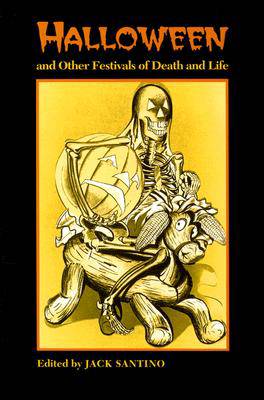
- Retrait gratuit dans votre magasin Club
- 7.000.000 titres dans notre catalogue
- Payer en toute sécurité
- Toujours un magasin près de chez vous
- Retrait gratuit dans votre magasin Club
- 7.000.000 titres dans notre catalogue
- Payer en toute sécurité
- Toujours un magasin près de chez vous
47,45 €
+ 94 points
Description
Why do we celebrate Halloween? No one gets the day off, and unlike all other major holidays it has no religious or governmental affiliation. A survivor of our pre-Christian, agrarian roots, it has become one of the most popular and widely celebrated festivals on the contemporary American calendar. Jack Santino has put together the first collection of essays to examine the evolution of Halloween from its Celtic origins through its adaptation into modern culture. Using a wide variety of perspectives and approaches, the thirteen essayists examine customs, communities, and material culture to reveal how Halloween has manifested itself throughout all aspects of our society to become not just a marginal survivor of a dying tradition but a thriving, contemporary, post-industrial festival. Its steadily increasing popularity, despite overcommercialization and criticism, is attributed to its powerful symbolism that employs both pre-Christian images and concepts from popular culture to appeal to groups of all ages, orientations, and backgrounds. However, the essays in this volume also suggest that there is something ironic and unsettling about the immense popularity of a holiday whose main images are of death, evil, and the grotesque. Halloween and other Festivals of Death and Life is a unique contribution that questions our concepts of religiosity and spirituality while contributing to our understanding of Halloween as a rich and diverse reflection of our society's past, present, and future identity.
The Editor: Jack Santino is an associate professor in the department of popular culture at Bowling Green State University, Bowling Green, Ohio.
The Editor: Jack Santino is an associate professor in the department of popular culture at Bowling Green State University, Bowling Green, Ohio.
Spécifications
Parties prenantes
- Auteur(s) :
- Editeur:
Contenu
- Nombre de pages :
- 312
- Langue:
- Anglais
Caractéristiques
- EAN:
- 9780870498138
- Date de parution :
- 25-05-94
- Format:
- Livre broché
- Format numérique:
- Trade paperback (VS)
- Dimensions :
- 153 mm x 228 mm
- Poids :
- 503 g







